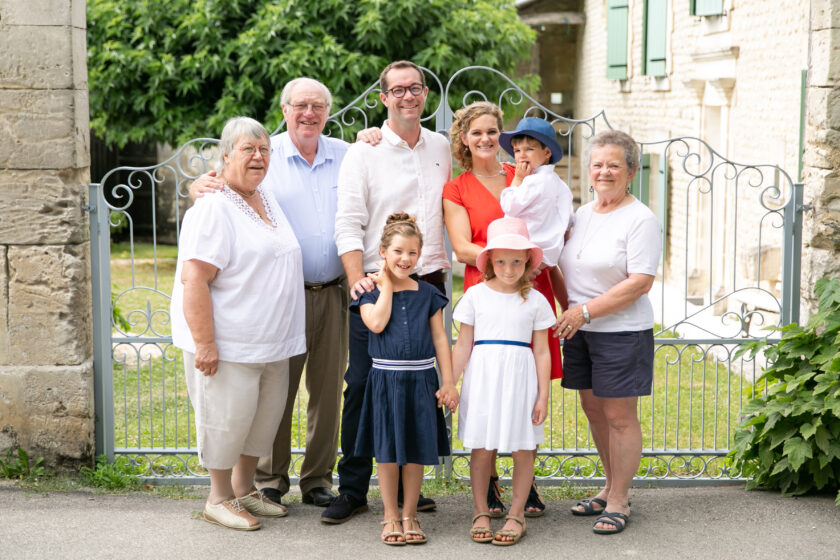Pasquet
Chez Ferchaud has been home to farming and viticulture for centuries, the estate passed down through inheritance for generations. In 1970, Jean-Luc Pasquet, then a special education instructor, was made heir to the domain—eight hectares of Grand and Petite Champagne vines—by an uncle through marriage. With his wife, Marie-Françoise, by his side, Jean-Luc embarked on the challenging path to becoming a grower/distiller of fine Cognac. The duo’s efforts paid off: In 1977, the respected brand of Jean-Luc Pasquet Cognac was born.
Notably, Jean-Luc transitioned the domain to exclusively organic farming in 1995, and the brand’s first vintage of organic Cognac was released in 1998. This labor of love and commitment to the land requires constant vigilance in protecting the vines from fungal diseases and invasive plants and is by no means the default method of growing in the region. No weedkillers or pesticides are employed, making way for the prioritization of organic matter. Soil in the vineyards is fertilized with local cow manure and grape compost; broad beans and blends of grains are planted between the rows as the grapes are harvested, then in springtime, they are reintegrated into the soil.
Jean Pasquet, the youngest of Jean-Luc and Marie-Françoise’s children, took over the domain when Jean-Luc retired in 2011. Jean’s passion for Cognac was inherited as surely as the estate, and having studied viticulture and viniculture, he was ideally positioned to take on the mantle of sustainable production begun by his father. In 2017, Jean’s wife, Amy, began working for the domain, and as co-owner and joint manager, grows awareness for its Cognacs in the international community.
Today, Chez Ferchaud boasts fifteen hectares of vines on both sides of the Grand Champagne and Petite Champagne border, in Eraville and Birac, respectively. Native yeast from the vineyards is used for fermentation, and eaux-de-vie is distilled on the lees in a 2000-liter gas-piloted Charentais pot still that replaced the estate’s original 500-liter wood- and charcoal-burning Charentais pot still in 1989. In retirement, Jean-Luc continues to practice his craft as master distiller, while Jean oversees the crucial choices made in the estate’s cellars. At 140 proof, eaux-de-vie is put in French Limousin oak casks made by a local cooperage, and the youngest of the Jean-Luc Pasquet Cognacs sees a minimum four years of age. All Cognacs are bottled by hand on the estate with no additives.
In its new generation of stewardship, Domaine Pasquet endures as a producer of approachable Cognacs and benchmark apéritifs that embraces tradition while thinking to the future and sustainable custodianship of the land.




